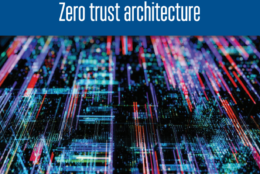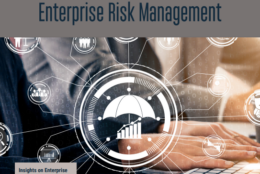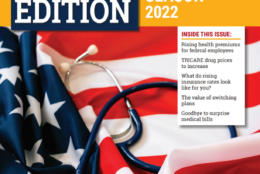SDFM The Business of Defense
-
Artificial Intelligence is widely used, but how do we know it's working appropriately? What prompted the Government Accountability Office (GAO) to develop an AI Accountability Framework? What are the core principles of this framework? Join host Michael J. Keegan as he explores these questions and more with Taka Ariga, Chief Data Scientist and Director of the Innovation Lab at GAO and Steve Sanford, Managing Director, Strategic Planning and External Liaison at GAO.
November 09, 2021 In this exclusive webinar, technology executives from the National Science Foundation, U.S. Environmental Protection Agency, National Oceanic and Atmospheric Administration and Lookout will discuss device security through zero trust.
November 09, 2021-
Agencies have always used the annual Federal Employee Viewpoint Survey as a key tool to measure feedback and satisfaction from their current workers. But Wayne Bobby, vice president for Workday Federal, said he sees more organizations using short, regular surveys to take the “pulse” of their employees. It’s a practice Workday uses on a weekly basis with its workforce of 14,000.
November 09, 2021 In this exclusive webinar, technology executives from the Cybersecurity and Infrastructure Security Agency, Department of Health and Human Services, Fidelis Cybersecurity, Forcepoint and Forward Networks will elaborate on their zero trust efforts.
November 09, 2021-
Malware, like ransomware and spyware, is rampant in federal networks. With mobile security as the Achilles heel of Zero Trust, mobile event logging can be a preventive care measure protecting federal network digital health.
November 08, 2021 -
The passion Compass Rose staff has for their clients - fellow members of the intelligence community - comes through loud and clear.
November 05, 2021 -
Human rights violations of the past and present remain a priority for federal law enforcement. A panel of guests from the Homeland Security Investigations’ (HSI) Human Rights Violators and War Crimes Center (HRVWCC) discuss the various disciplines that form the center, the resources at their disposal to safeguard human rights and thwart war crimes, and their work to prevent these crimes domestically and abroad.
November 05, 2021 -
Federal agencies, seeking both compliance with a White House executive order and better cybersecurity in reality, are rapidly adopting the zero trust model for controlling access to their networks. They’re learning that zero trust, like…
November 03, 2021 -
Federal News Network surveyed six agencies about their approach to risk management, including the use of cloud services, artificial intelligence, advanced analytics and other technologies.
November 02, 2021 -
People are going back to the dentist in full force to regain control of their oral health. Open Season is the best time to reexamine the dental plans available to federal employees and TRICARE retirees, as plans and premiums may be changing.
November 02, 2021 -
In this exclusive webinar, technology executives from across DHS and Splunk will explore the benefits and challenges for cybersecurity as the department shifts to a zero trust architecture.
November 01, 2021 -
This week, hosts Mark Masselli and Margaret Flinter speak with Planned Parenthood Federation of America CEO Alexis McGill Johnson, on upcoming Supreme Court hearing on S.B.8., the Texas law banning abortion after 6 weeks. She discusses the record number of restrictive abortion laws across the country causing harm to patients and clinicians committed to providing family planning services, and the former administration’s Title X abortion ‘gag’ rule, which greatly hampered access to legally-guaranteed ‘right to choose’. She expects Roe-v-Wade will likely be permanently compromised with the current conservative configuration on the nation’s High Court.
November 01, 2021 -
Hosted by Dr. Richard Shurtz and Andrew Mitchell. Sponsored by Stratford University. We tell you exactly how to register an NFT. And we meet the American writer best known as the editor of the “Whole Earth Catalog” and co-founder of The WELL, the first online virtual community.
November 01, 2021 -
Agencies are eyeing a range of possibilities to take advantage of 5G advances, but perhaps no application is more urgent than ensuring and even boosting connectivity to aide disaster response. “Through mechanisms in 4G and 5G, we can prioritize access and bandwidth in such way that wireless priority service can be given to first responders,” said Mark McDiarmid, senior vice president for radio network engineering and development at T-Mobile USA.
October 29, 2021 -
This exclusive e-book will help you navigate federal health care benefit plans for 2022 open season and how to choose what's right for you.
October 29, 2021













